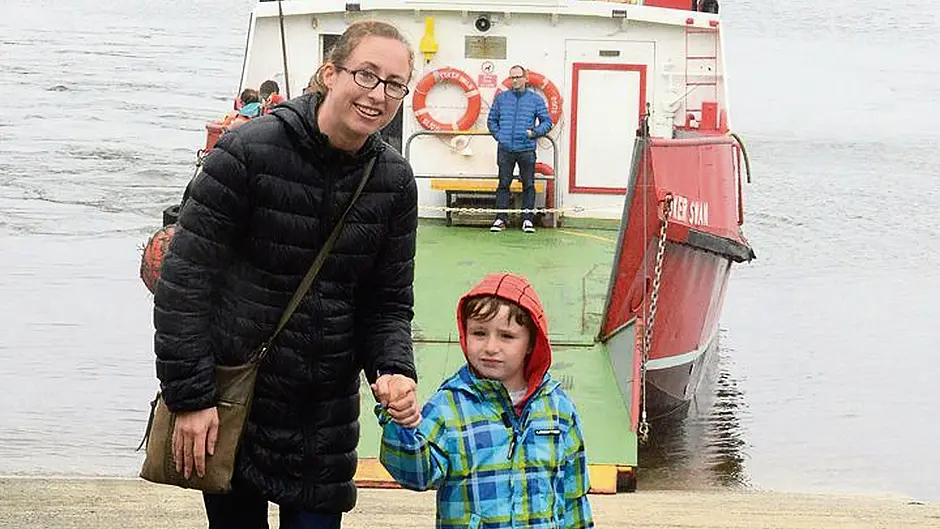The significant health and safety risk posed for the children from Sherkin Island who now have to attend school on the mainland was raised in the Dáil by Fianna Fáil Deputy Margaret Murphy O'Mahony.
THE significant health and safety risk posed for the children from Sherkin Island who now have to attend school on the mainland was raised in the Dáil by Fianna Fáil Deputy Margaret Murphy O’Mahony.
The primary school on Sherkin Island closed last June, she said. Children now attend school on the mainland, which means using the ferry to get there.
There is no Dept supervisor on the ferry or on the mainland once the ferry docks.
This, said the deputy, poses a significant health and safety risk to the children, some of whom are as young as four years of age, while others are 12.
‘The Department of Culture, Heritage and the Gaeltacht has provided an extra ferry to ensure that the children can get off the island in the morning. The residents are grateful for this. However, there is an urgent need for a chaperone on the ferry and to escort the children from the pier to the bus in Baltimore on the mainland,’ she said.
At present, she said parents of children between the ages of four and 12 are operating a rota system to chaperone their children on the ferry and thereafter from the ferry to the bus on the mainland. This is a four-hour daily commute for parents wishing to educate their children but is the only means open to them. It is unfair, she said.
In response, the Minister for Education and Skills Richard Bruton said there is no charge for the children on the ferry. ‘Bus Éireann has advised that there are two children who are in fourth and sixth class who attend Rathmore national school with an address on Sherkin Island,’ he said.
‘As these children are collected at the pier where they get off the ferry, a long walk is not involved. Unfortunately, the scheme that applies has to apply uniformly and we do not provide chaperones in the sort of circumstances the deputy describes.
‘They are confined to children with special needs. There are other children who have to adapt to the scheme. There are continual demands for expansion and extension of this scheme. We have had to operate in a situation where rules are applied uniformly in order that we can stand over them on a consistent basis and where every child is treated on the same basis.’








